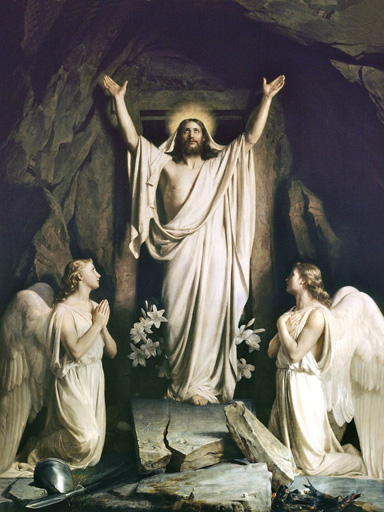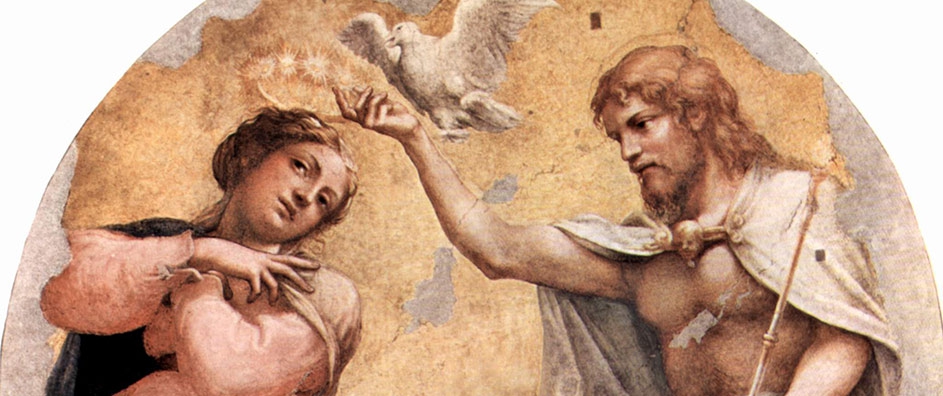The views expressed in our content reflect individual perspectives and do not represent the authoritative views of the Baha'i Faith.
The word “incarnation” literally means “embodied in flesh.”
In a religious context, incarnation usually means that God descends from heaven and becomes human. Baha’is do not accept the doctrine of incarnation. Many Christians do. But what is the doctrine of incarnation? Let’s examine the doctrine and see what we can find.
To be fair, the doctrine of the incarnation is controversial even within Christianity. The doctrine is hard to state correctly, harder still to interpret correctly, and impossible to know if the “correct” interpretation is actually correct. For example, if a Christian were to take the most obvious derivation and explain that the incarnation means that God took on the form of Jesus (and later the Holy Spirit), that Christian would be a heretic because this concept, known as Monarchism, was condemned within Christianity.
To clarify the point, a modern Christian theologian, Francis Young, writes:
The simple equation Jesus=God not only fails to represent what Christian tradition has claimed, but is distinctly odd. To reduce all of God to a human incarnation is virtually inconceivable, a fact to which Trinitarian doctrine is the traditional response. – The Myth of God Incarnate, p. 35
One thing wrong with the concept that Jesus=God is that it implies that God Himself suffered and died. The concept leaves us to wonder how God (Jesus) managed the affairs of the universe from His earthly seat; and why the New Testament seems intent on maintaining a distinction between them, e.g. Father and Son? Ultimately, almost all Christians reject the concept that Jesus=God, because it is in fact not Christian. Christian doctrine is much more complex and bound up, as implied above, with a host of other concepts. Let’s take a look at the Biblical roots of the incarnation concept. Maurice Wells, a Christian theologian writes:
Incarnation, in its full and proper sense, is not something directly presented in scripture. It is a construction built on the variegated evidence to be found there. – ibid, p.3.
 The roots of this belief lie in scattered phrases in the Gospel that were later shaped by church leaders and theologians into an incarnation concept, and eventually merged with other ideas to form a complex doctrine about the nature of Christ. And when this doctrine became official, it changed the nature of Christianity, making it very difficult for Christians to accept any more recent Prophet or Manifestation of God.
The roots of this belief lie in scattered phrases in the Gospel that were later shaped by church leaders and theologians into an incarnation concept, and eventually merged with other ideas to form a complex doctrine about the nature of Christ. And when this doctrine became official, it changed the nature of Christianity, making it very difficult for Christians to accept any more recent Prophet or Manifestation of God.
Many, if not most, of the world’s major Faiths have gradually gone through this process. Here’s a general outline of how it works: the Prophet appears and teaches a message that brings people together and calls to their higher nature and spiritual capacities. Then, after the Prophet and founder of the new Faith leaves this mortal world, authorities emerge—usually in the form of a priesthood or a clergy of some type. Gradually, a clerical establishment emerges that narrows authorized belief, often focusing on arcane distinctions that have the effect of re-defining, re-interpreting, and sometimes re-inventing the teachings of the Prophet. Ultimately, the clerical class finds ways to distinguish their Faith above all others, outlawing or discrediting all others across all time.
The incarnation is one such re-invention. If you look carefully at Christ’s own statements, as the Gospel recorded them, you’ll see that the idea of incarnation was never expressed during Christ’s lifetime.
The Baha’i teachings clearly say that the idea of incarnation is a metaphorical one, not a literal one. When Abdu’l-Baha was asked “What is the relationship of Christ and Baha’u’llah with God?” he answered:
His Holiness Christ said: “The Father is in me.” This we must understand through logical and scientific evidences, for if religious principles do not accord with science and reason, they do not inspire the heart with confidence and assurance…. Let us, free from past tradition, investigate the reality of this matter. What is the meaning of the father and the son?
This fatherhood and sonship are allegorical and symbolical. The Messianic reality is like unto a mirror through which the sun of divinity has become resplendent. If this mirror expresses “The light is in me” – it is sincere in its claim; therefore Jesus was truthful when he said, “The Father is in me.” The sun in the sky and the sun in the mirror are one, are they not? – and yet we see there are apparently two suns. – Divine Philosophy, pp. 151-152.
















Comments
Sign in or create an account
Continue with Googleor